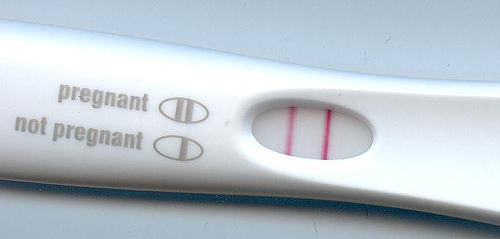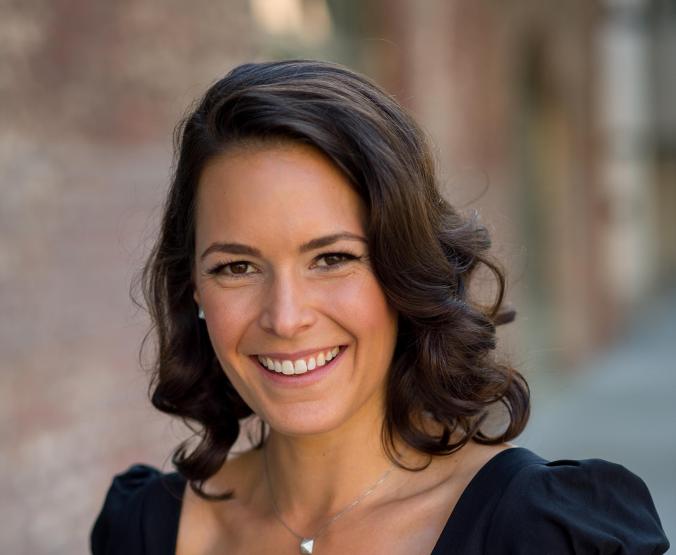
This is another post in the naturopathy versus science series, where a naturopath’s advice is assessed against the scientific literature.
It’s Naturopathic Medicine Week in the United States, so it’s time for another look at the alternative medicine practice that blogger Orac likes to call the One Quackery to Rule them All. Naturopathy is an oddity among alternative medicine, because it’s a hodgepodge of other practices linked by an underlying belief in vitalism: the pre-scientific notion that living things have a “life force”. Vitalism disappeared from medicine when Wöhler synthesized urea in 1828, yet the belief in vitalism is a central tenet of naturopathic philosophy. Naturopaths liken themselves to be primary care providers akin to family physicians (general practitioners) but their practices are quite different: rather than make decisions based on scientific evidence, naturopaths pick and choose based on what they feel is congruent with their vitalistic philosophy, sometimes despite good scientific evidence that shows they are wrong. For example, homeopathy is an alternative medicine practice that is very popular with naturopaths. It is an elaborate placebo system where “remedies” contain no medicinal ingredients: they are literally sugar pills. There is no demonstrable medical effect from homeopathy, and so it isn’t part of science-based medicine. Yet homeopathy is a “core clinical science” for naturopaths, and the practice of homeopathy is part of their licensing exam.
Naturopathy: Alt-Med Paternalism
According to naturopaths, what they offer is a return to the practice of medicine that’s now been lost:
While the training and approach of ND’s is progressive, they practice in ways reminiscent of old-fashioned family doctors. They take the time and effort to learn about each patient and his/her family. This means seeing fewer patients a day. Naturopathic physicians commonly spend 60 to 90 minutes per patient visit, listening to patient concerns, diagnosing and treating each patient as an individual. This is a practice that benefits both patient and doctor.
Likening naturopathy to “old fashioned” medicine is apt. On the positive side, naturopath consultations are much longer than medical doctors. But that’s where the positives end. Like old-fashioned medicine, naturopaths don’t practice according to what the scientific evidence says. Without a scientific basis for decision-making, “treating each patient as an individual” is justification for making treatment decisions on the fly, without any standard of care, or even an expectation that naturopaths must defend or explain their decisions from an evidence perspective. And despite all the claims that naturopaths do “individualize” their treatments, what naturopaths offer for virtually every condition tends to be based around the same pseudoscientific beliefs: You’re toxic. You’re acidic. You’re filled with yeast. Your adrenals are tired. And lately, gluten is poison. And the solutions offered are strikingly similar: homeopathy, acupuncture, and lots and lots of supplements.
The era of paternalism in modern, science-based medicine largely disappeared with the “old time family doctor” too. Today’s medical model is based on principles of patient autonomy and informed consent. Health professionals are responsible for providing objective information on treatments to support informed decision-making by patients. This advice must be defensible and is judged by what is considered that profession’s standards of practice — which are scientific standards. Patients, as partners, take information provided by health professionals and make care decisions based on a consideration of their own values and preferences. In an informed consent model, lying to patients about a treatment’s efficacy, or withholding information about the evidence, is not only unethical, it could put a health professional’s license at risk.
Naturopathy, like other alternative medicine practices, appears to be highly paternalistic, and consequently may be compromising patient autonomy and choice. It does this by first promoting the idea that science and evidence is relative, poisoning the well for what comes next — the erosion of an objective standard of care. Second, providers fail to offer full disclosure on the efficacy of their treatments. Naturopaths do not offer treatments based on good evidence (as I’ve described in my series of posts and as documented in the literature). While naturopaths can offer science-based advice, they can also promote practices that are are either not proven to work, or are proven not to work. Third, vitalistic beliefs push naturopaths to shift responsibility for illness on to the patient, a tactic which has been described as “Your disease, your fault”, implying that many illnesses are preventable — confusing patients about the scientific facts of their own health conditions. Finally, naturopathy creates fake diseases like adrenal fatigue out of whole cloth, and conveniently offers the treatments for them as well. True patient-focused, autonomous care requires discussions that are grounded in honest disclosures between provider and patient, which seem incompatible with the philosophy and practices of naturopathy. An illustrative example of naturopathic paternalism can be found in today’s case study: naturopathic treatments for infertility.
The Facts of Infertility
Infertility is formally defined a failure to conceive after 12 months of regular intercourse without use of contraception (in women under 35 years of age) or after 6 months of regular intercourse without contraception (women 35 or older). The number of couples that are infertile isn’t clear. Current estimates from the CDC [PDF], suggest around 6.0% of America women are affected, which is over 1.5 million women between the ages of 15-44. Infertility isn’t rare, and many women (and couples) seek medical advice for what’s perceived as impaired fertility.
It’s important to note that failure to conceive isn’t an issue for an individual — it’s an issue for a couple, and should not be assumed to be due to the female. Infertility is a disease of physiology, not psychology. Causes include a lack of sperm, tubal obstruction, or a failure to have regular periods. Often it may not clearly be an identifiable cause, and it can be difficult to sort out probable from possible causes. But medical science has made significant progress in identifying the (true) root causes of infertility, and addressing them. Treatments either target reversible causes, or the attempt to circumvent causes that can’t be reversed. Lifestyle factors that are usually suggested include smoking cessation, minimizing caffeine and alcohol, and ensuring coitus is attempted regularly around the appropriate time in the ovulatory cycle.
Medical therapies for infertility include drug treatments with fertility drugs. Other treatments can include surgery and procedures like intrauterine insemination or in-vitro fertilization. Medical advances have brought significant advances in treating infertility, and up to 50% of infertility cases can be addressed with medical interventions.
Naturopathy and Fertility: Where Anything Goes
Fertility is big business for naturopaths. An Alberta survey of naturopath websites found that 45% advertised that they could treat fertility issues. And it’s not surprising that there would be a search for alternative options. “Medicalizing” what usually occurs naturally can be quite distressing. If only there were a “natural” approach to infertility that could eliminate the poking, the prodding, and all the drugs. So is there? Here are the themes from among the 251,000 sites featuring naturopathy+infertility. Perhaps not surprisingly, most naturopaths offer similar lists of causes (and treatments):
Toxins, toxins, toxins: According to naturopath Iva Keen, you’re not pregnant because you’re toxic:
Most chemicals used in everyday life do not go through the same checks medicines do. Consequently; poisonous chemicals end up circulating in our environment, food supply, air and water. … Unfortunately, our waterways are constantly being polluted by industrial waste and by products, pharmaceutical drugs, pesticides and herbicides and commercial cleaning products. Heavy metals are the most common of the reprotoxins reaching our water supply through industrial waste, jet fuel exhaust residue and a variety of other sources.
Keen suggests drinking filtered water — an unnecessary recommendation, as there’s no evidence that municipal water supplies are causing infertility.
You need to detox: According to naturopath Shawna Darou:
In many cases, treatment may start with a 10-14 day detoxification program with the aim to reset hormone levels, remove toxins as much as possible and remove inflammatory foods. Toxins may be an impediment to fertility and before the body can conceive it needs to detox various toxins that have built up in fat cells over many years of living in polluted environment and consuming unhealthy foods that contain fertility inhibitors.
As has been pointed out many times, “detox” as advertised by naturopaths is a delusion. Genuine detoxification treatments are medical procedures that are not casually selected from a naturopath’s menu of services. Yet the term has been co-opted to give a veneer of medical legitimacy to what is effectively a catharsis, with no objective medical benefits — and zero impact on infertility.
You need homeopathy: Darou continues:
Homeopathy is a powerful aid in stimulating fertility. In 50% of our clinical case we observed a dramatic positive change in fertility directly related to homeopathic treatment. Each case will undergo a thorough homeopathic assessment and constitutional remedy recommendation.
How magic beans stimulate fertility isn’t clear — you’d think with a 50% effect, that a clinical trial would be easy to perform. The one trial I could find showed no effect.
You need herbs: Naturopath Nicola McFadzean Ducharme is a strong proponent of herbal medicine for infertility, listing dozens of herbal remedies she recommends for infertility:
For many natural therapists, herbal remedies form the foundation of naturopathic treatment of infertility.
and
Given that hormonal balance is dependent on the hypothalamic-pituitary-reproductive axis, as well as the pineal gland, remedies to support this should be given, such as Avena, Passiflora and Pulsatilla. These herbs also act as nervines, strengthening and supporting the nervous system. Rehmania, Peony and Licorice may also strengthen pituitary function.There are particular herbs that have estrogenic, progesterogenic or adaptogenic effects. Estrogenic herbs include Alfalfa, Licorice, Fennel, Hops and Clover. Progesterogenic herbs include Wild Yam, Birth Root, Sarsaparilla and Stargrass; while Chaste Tree, Saw Palmetto and Blue Cohosh are adaptogenic, meaning they regulate either way depending on the need.
Prolactin excess can be treated with Chaste Tree or Rehmania; Bugleweed and Hops will help high levels of LH; FSH levels can be raised through use of Black Cohosh, which also lowers raised LH and increases estrogen. Chaste Tree lowers elevated FSH, testosterone, prolactin and raises low levels of LH and progesterone.
Emmenagogues are herbs used to promote circulation and menstruation, and therefore are indicated if amenorrhea is present. Such herbs include Mugwort, Pennyroyal, Tansy, Rue and Southernwood. These should be used with the herbs that promote normal ovarian function. If excessive bleeding is the problem, hemostatic and astringent herbs such as Shepherd’s Purse, Beth Root, Lady’s Mantle, Cranesbill, Raspberry and Black Haw may help.
This advice goes on for several more paragraphs. Perhaps not surprisingly, there is no established role for herbal remedies to treat infertility. No products have been demonstrated to have meaningful effects. Then there’s the teratogen (birth defect) risk of herbal medicines. Combined with the unclear quality control of herbal products in North America, herbal products bring risk, with no established benefit.
You need vitamins: Prenatal vitamins are a science-based treatment during the pre-conception period, but there’s no good evidence that prenatal vitamins provide a fertility benefit. Naturopath Pamela Frank who claims that “We only recommend science based treatments” makes the following recommendations:
As a naturopathic doctor, my 4 years of post-graduate nutrition training and 14 years of experience makes me one of the most highly qualified diet and nutrition experts in health care. Naturopathic doctor training in nutrition is unbiased by political interests such as the Canada Food Guide, the dairy marketing board or the wheat marketing board, based instead on what is scientifically proven to help balance hormones and improve fertility. Diet can either cause or contribute to infertility. Likewise correcting your diet can help your body to reverse infertility. Special individually customized diets will be recommended, and treatment may include nutritional supplements such as vitamins, minerals, enzymes, and other natural supplements.
i.e., Your body, your fault. She continues:
Certain vitamins and minerals can help balance hormones, nourish the endocrine glands like the adrenals, thyroid, ovaries and pituitary and support liver detoxification. Most are safe to use along with fertility treatments and to continue throughout pregnancy. Multivitamins in our experience do not work to fix a deficiency. Why? Because they contain too many different vitamins and minerals, often at too low a dose, that are all competing to be absorbed. We find it far more effective and efficient to target the specific vitamins and minerals that our individual patients need. Vitamins and minerals can also have a significant impact on the health of your future child. Conditions like ADHD and autism have been linked to deficiencies of B vitamins and minerals like magnesium, environmental toxins and hormone imbalances in the mom.
Again, no references, and no basis in reality.
You need acupuncture: Acupuncture is widely touted as an effective treatment for infertility, particularly in combination with in-vitro fertilization. According to naturopath Fiona McCulloch,
We also provide acupuncture, using research driven protocols that have been proven to increase fertility by a substantial margin (40-60% increase in success rates for IVF cycles). Acupuncture provides you with the time and space to feel completely relaxed while physically enhancing blood flow to your pelvic organs and developing follicles as you go through natural cycles, or prepare for your IVF or IUI cycles. Overall, the program will substantially improve follicle health, enhance implantation, and restore hormonal and emotional balance.
Naturopath Shawna Darou claims the following:
Acupuncture is a non-invasive, all-natural way to improve your chances of becoming pregnant with assisted reproductive procedures by up to 65%1.
To her credit, Darou at least lists references. Unfortunately the facts (when you don’t cherry pick) are less impressive than the claims. The evidence for the effectiveness of acupuncture on infertility is less than established. In fact, there’s no good evidence that acupuncture has medical effects for any condition, including infertility. And why would it? Infertility has a physiologic cause. Acupuncture is a theatrical placebo which lacks any objective effects. It is a belief system that’s also based on vitalistic thinking except with acupuncture, ‘Qi’ is the life force.
Stop eating gluten: Naturopaths are proponent of clinically useless IgG food intolerance tests. They recommend these tests as part of fertility evaluations, and also recommend avoiding gluten, linking it to infertility.
Naturopathy reduces stress, which improves fertility: Naturopath Jen Newell claims:
Research into Naturopathic Medicine has found that seeing a Naturopath reduces stress for patients by 15-20%. Patients feel listened to and are able to discuss aspects of their care and lives to reduce perceived stress. Managing stress increases chances of successful conception. Naturopathic care is also helpful at reducing anxiety associated with fertility treatments.
No evidence or citations are provided. I could find no data in medical literature to substantiate this point, though I can see how a 90 minute consultation where unrealistic promises are made to patients could in fact reduce stress. However the link between stress and infertility is not clear, and while stress reduction is probably beneficial for its own reasons, there’s no established evidence that stress reduction will increase fertility rates.
Conclusion
Naturopaths claim to be primary care providers, like medical doctors, but practicing with an older model of medicine. Given the paternalism and disregard for scientific evidence displayed in this evaluation of naturopathic infertility treatments, one wonders if naturopaths realize just how accurate this statement is. Naturopaths were identified to routinely and consistently offer treatments that are either not proven effective, or are proven to be ineffective. They uniformly failed to disclose on their websites that their treatments lack good scientific support, which may leave consumers with a misleading impression about the effectiveness of naturopathic treatments. Given there is no evidence that these treatments have any meaningful effects, there is no demonstrated role for naturopathy in the treatment of infertility.
Photo from flickr user TipsTimesAdmin used under a CC licence.
Like this:
Like Loading...
Click for detailed story



